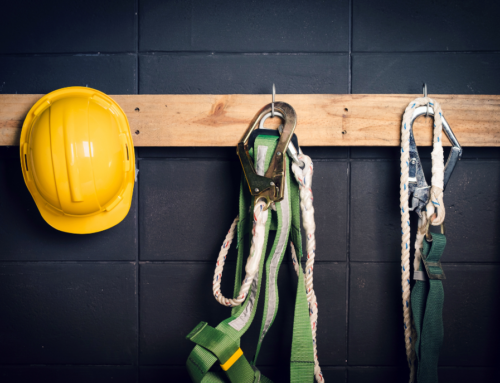Why Construction Leaders Should Focus on Resiliency in a Post-Covid 2022
In my role here at Raymond Search Group, I have the privilege of talking to leaders in the construction space every day, and the common theme I hear in all these conversations is the challenge of trying to keep up with massive changes that are occurring in our industry at a rapidly increasing pace.
To be fair, construction companies have always had to be resilient by adapting to the ever-changing needs of their customers and the economy. But in a post-Covid 2022 world, that resilience is more important than ever.
Over the last two years, many leaders have had to lay off workers as they saw a massive slowdown in business, and as business has started booming again, hiring back those same workers proved darn near impossible. Add to that ever-changing regulations that directly affect the construction industry, as well as rising inflation, a rapidly booming housing market, and the specter of new and ever more contagious variants, you have a recipe for disaster for construction leaders whose teams cannot keep up with these changes.
This is likely to continue for the foreseeable future, so construction companies need to find ways to adapt to changes in market conditions at a moment’s notice. My goal here is to guide you on how you can do so, but first I need to define what resilience is and why it’s important.
What is resiliency in the workplace, and why is it so important?
Resiliency in the workplace is the ability to withstand pressures, adapt quickly, and bounce back from adverse conditions. Construction project teams have to be resilient because their projects are often delayed or cancelled due to weather, loss of funding, natural disasters, and of course pandemics.
In a post-Covid 2022 world, construction leaders need to focus on resiliency in order to maintain their competitive edge. Construction teams that are able to quickly adapt to changing conditions and rebound from setbacks will be exponentially more successful than those that can’t.
Resiliency is also important for employee morale and productivity, as it allows employees to quickly rebound from setbacks and continue working. Construction leaders need to prioritize the development of positive mindsets and build strong relationships between coworkers by promoting collaboration and teamwork.
Construction project teams that only focus on end goals, rather than the process of how they’ll get there, are less resilient because they won’t be as adept at withstanding adversity as those who understand the path from point A to point B. Construction project teams must focus on the process in order to increase their chances of success. This can be done through effective communication and planning, as well as by training team members on how to be resilient.
Ultimately, construction leaders who want to succeed in a post-Covid 2022 world should focus on resiliency in the workplace. By promoting positive mindsets, building strong relationships, and training employees how to be resilient, construction leaders can create a more productive and successful team, and as a result continue to increase their profits year over year, despite what the market does.
Here are a few suggestions on how to start down the path towards resiliency in 2022.
Be ready to adapt to new Covid variants quickly
It may seem obvious that it is important to be ready to adapt to new Covid variants quickly, it is one that is more important now than ever before.
Post-Covid 2022 will be a different world for construction companies and leaders alike, but no one has a very clear idea of how this future will play out, so it is important that they focus on resiliency in order to accomplish their goals and keep up with changing conditions. The worst thing they can do is to be inflexible, and not react quickly and effectively when needed.
This also means having an open mind about what the future may hold. According to a COO of a major construction company I spoke with a few weeks ago: “We need to plan for adaptation rather than how to achieve the most optimal outcome by building toughness into our organizations. I’m telling my managers that they need to be open minded about how Covid will impact operations rather than focusing on optimizing the construction process.” Like him, leaders who want to have a bright future in the construction space need to build a strong foundation that can accommodate other changes, as well as what’s already been done.
Construction leaders must be resilient and able to bounce back after setbacks to maintain a successful business, and this also means having an open mind about what the future may hold. It also means they should have a backup plan in case of a pandemic and be prepared to make quick decisions. Having a resilient workforce will be key to overcoming any challenges that may arise.
Add resiliency training to your employee development programs
Construction leaders should take actions to help their employees build resiliency and be prepared for difficult challenges. Construction projects are often postponed or cancelled due to pandemics, so it’s important for leaders to have a workforce that is able to withstand these changes. That is why construction leaders should provide resiliency training for their employees in order to create a stronger team that can adapt quickly.
Resiliency training should include the following:
Healthy lifestyle training: Taking care of one’s health is an important part of being resilient. Construction workers need to be in top shape in order to be able to handle the physical demands of their job. Construction leaders should encourage their employees to stay healthy by eating a balanced diet and getting plenty of exercise. Team members who are in good health will be better able to handle difficult challenges, and they will be more productive and engaged with their work.
Don’t forget about the importance of a good night of sleep either. Construction workers who are well-rested are more productive and engaged with their work, and they are much less likely to be susceptible to contagion.
Reframing challenges as opportunities: When it comes to working in construction, it is important to be able to face challenges head-on. Construction leaders should focus on reframing challenges as opportunities. This means looking at a difficult situation and figuring out how to turn it into a positive experience. This concept is known as constructive cognitive appraisal.
Constructive cognitive appraisal is the process of reframing threats as opportunities. This allows for a greater chance of shaping an individual’s reaction, so it won’t be so negative. Threats are feelings that cause one to feel uncomfortable and they don’t always have to be negative things. Construction leaders should focus on extracting lessons from these threats, which will allow them to act on information received rather than operate out of fear.
Construction projects are often complex and challenging. By focusing on reframing challenges as opportunities, construction leaders can help their team stay positive and motivated. When workers are positive and motivated, they are more likely to be productive and efficient. Additionally, by facing challenges head-on, construction leaders can learn from their mistakes and improve their skills.
Promote diversity and team-building
Construction leaders have long been struggling with how to make their workforce more resilient and better prepared for Covid-like disruptions. Diversity is an important part of resilience, and construction managers should focus on promoting diversity within their workforce. This means promoting diversity and team-building exercises within your company in order to create a strong, cohesive team. Employees who feel like they are part of a team are more likely to be cooperative and responsive to change, which is essential in in our industry.
This can be done by providing training that helps employees learn about different cultures and how to work together. Construction managers should also focus on team-building exercises that help employees get to know each other better. Employees who are familiar with one another are more likely to cooperate with each other when a difficult situation arises.
To take these exercises a step further, foster teamwork through open communication and cooperative exercises like icebreakers. Construction leaders also need to consider promoting diversity as well as leading exercises- this not only benefits their company but makes employees more competitive against one another rather than constantly competing against one another.
Focus on open and honest communication
It’s also important for construction leaders to focus on communication. Construction projects are often complex and require a great deal of coordination between workers. By focusing on communication, construction leaders can ensure that their team is able to effectively communicate with each other, regardless of their location. Construction projects require effective communication, and when workers can’t communicate effectively with each other, it may hinder the project.
One example would be having an open mind about different perspectives or opinions. Construction leaders need to be open to new ideas and suggestions to build a more resilient team. If leaders are closed-minded, they will not be able to adapt to changes and will likely face difficulties in the future.
It’s also important for leaders to be receptive to feedback and new ideas. This allows them to understand how their team is feeling and what they can do to improve the work environment. That leads to learning new things from their team members they may not have otherwise thought of, and applying them to future projects.
How can I tell if my team is resilient?
That’s a great question, and it’s a question that has vexed many construction leaders that I’ve talked to. While some factors may be more important than others, the way I see it, you should be looking for the following in your team:
- Employees who have a positive attitude are more resilient than those who do not.
- Employees who are familiar with the company culture are more resilient than those who are not.
- Employees who have strong social support networks are more resilient than those who do not.
- Employees who are able to take care of themselves are more resilient than those who cannot.
- Employees who have access to resources are more resilient than those who do not. This includes social, family, and monetary resources.
- Employees who have strong problem-solving skills are more resilient than those who do not.
- Employees who are able to adapt to change are more resilient than those who cannot.
Ultimately, the ability to build and foster a culture of resiliency is one of the most important tools any construction leader can have in their leadership toolbox. Those leaders who strive for resiliency are those who enjoy an effective work environment where everyone can communicate openly about different perspectives without judgement, which is what ultimately leads to innovation, increased productivity, and happier customers.
The good news is that it’s not difficult, but does start with taking action, no matter how small that action may be. If you would like to discuss additional best practices around creating resiliency in your people, book a call with myself or with my team members and we would be happy to share with you with you what some of the most successful construction leaders are doing right now to ensure they remain competitive in this ever-changing Post-Covid landscape.








Leave A Comment